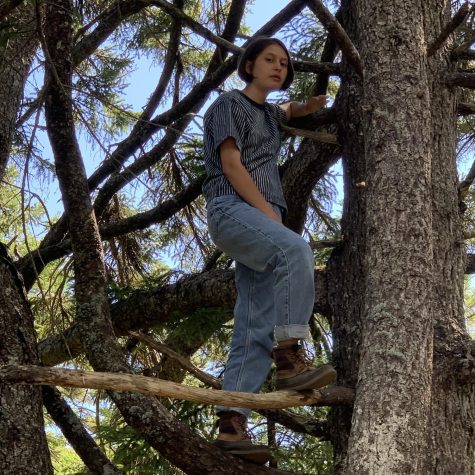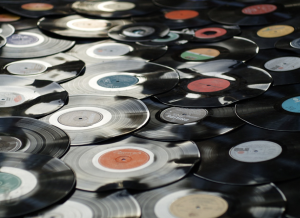The Dark Side of South High
June 6, 2023
As a senior of the class of 2023, I am part of the only class still at South that has experienced high school pre-COVID. This fact seems relatively benign and unimportant. After two years of pandemic schooling, we’ve finally returned to the events that have defined South since it first opened its doors, and school has returned to business as usual. But there exists a sharp delineation between the pre- and post-COVID eras of South’s history, even sharper than the presence of masks in classrooms—a shift within South’s culture. I can sense this change in myriad ways: in our academic culture, in the language I hear in the halls, in the way we interact with one another across grade levels and cliques and even between students and faculty. For the most part, I sadly can say that I have watched South High’s student culture degrade over the course of my four years within these walls. Whether due to COVID or shifting teenage culture at large, the sense of community at South has diminished, and this disruption manifests in different ways. An uptick in students cutting Regents, Honors, and AP classes alike, belittling and bigoted language shouted carelessly in the halls, and a lack of concern for our fellow students have all damaged the community I once saw at South. But I know that this shift does not define our school, and that we can recalibrate our culture, moving away from this nastiness and towards a cohesive community.
Given our school’s standing as one of the best high schools in New York state, and our fealty to “the grind,” the prevalence of cutting seems like a paradox. While cutting has never been a non-issue—and our school has never been perfect—the level of cutting we’ve reached as a student body this year has surpassed that of past years, a dubious distinction to be sure. This year, however, classes that students would never cut in the past, like AP English Language, found themselves missing students. In my own science class, one desk remained conspicuously empty each week, and a rotation of seniors and juniors routinely disappeared. In my freshman year, I had hardly ever heard of my peers skipping class; now, even freshmen cut. This issue has moved beyond simple high school mischief; it’s grown to seriously disrupt classes, harming the education of the class as a whole. While some teachers, like my science teacher, have taken steps to reduce cutting—including harsher punishments for frequent cutters—teachers can only do so much to assuage this problem on their own. Real change comes from within the student body. We must realize the way our actions, however fun and good-natured they may seem in the short-term, are harming our education and our peers.
Outside of the classroom exists another, more insidious way in which we hurt each other, something less outwardly outrageous than cutting class but even more ubiquitous: an increase in harmful, hateful language exchanged between students. This year, I personally faced some of the worst misogyny of my life within the walls of South High; unfortunately, even that experience pales in comparison to what I hear students say when they think no one else is listening. Almost every day I hear a remark shouted carelessly in the halls that makes the back of my neck prick. My stomach churns at the casual homophobia, sexism, and racism I observe. Students calling each other “gay” as an insult, students speaking disparagingly of the girls in their class, students using racial slurs to mock their “friends.” Even when in faculty-supervised spaces, nonblack students use the N-slur casually, as if it were just another “bad word” and not a relic of a deeply racist past. Even more prevalent is the almost-constant appropriation of AAVE (African American Vernacular English) by nonblack students in our school. AAVE is its own language with different grammatical structures and rules, not “Internet slang” to be parroted mindlessly. This behavior is inexcusable everywhere—especially so in a purportedly “No Place For Hate” school—and its prevalence within South troubles me deeply. This is not to say that our school has ever been perfect in the past; I’m not claiming that language in poor taste and issues with homophobia, sexism, and racism did not occur pre-COVID. But on a personal level, I cannot imagine the deluge of belittling remarks I hear today happening only four years ago. The sheer saturation of this type of language shocks me. This is not the South High I grew to love.
That version of South died in the pandemic, halfway through lockdown. Something changed in the year-and-a-half we spent away from our school and from each other. And whatever broke did not fix itself last year, either, despite our best efforts to “return to normal.” More than anything, COVID isolated us from our peers and our teachers; we seemingly all grew meaner in that absence. The echoes of involuntary isolation and a lack of human connection and the leniency of our remote year still inform the ways in which we interact with one another. Isolation and an increased reliance on social media during that time have made us forget the value of human interaction. We’ve become blind to the personhood of those around us, and so we treat each other cavalierly without ever pondering the impacts of our actions. And that lack of mutual recognition, more than anything else, has bred the culture of toxicity that has come to define my final year at South. Beyond COVID, the reasons for this general nastiness are as layered as they are varied; too many exist for me to name within this piece. But, ultimately, these causes matter less than the situation they’ve created. We should focus less on what led us to this point and more on what will lead us out.I can see this glimmer of mutual recognition reemerging at South High. It is up to us to reach it; we all have a part to play in this. Teachers, especially, act as stewards of the student body and can guide us towards the feeling of compassion and understanding that we have lost, But it is up to us, the student body, to fully change for the bettter. It is our behavior that defines our culture, our behavior on which we live or die. As cliched as it is, we can create a paradigm shift; we can value our academic and personal lives equally, and we can have fun while doing so. A helpful and healthy school culture is built on mutual appreciation. So realize and respect the effort your teachers put into teaching. Look at your friends and treat them with kindness. Move away from the hurtful and towards the beautiful. I am leaving in a month; I will not be here long enough to benefit from an improved student culture. But I believe it is worth continually reaching for. So reach for it.







